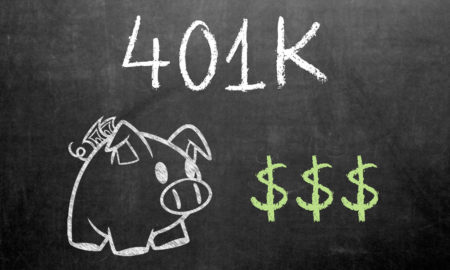You may have heard my story. I’m the guy who paid off his mortgage by age 30. CBC News filmed my mortgage burning party and it went viral.
While a lot of people know I’m mortgage-free, I wanted to share my story of how I got there. I’m writing a book called “Burn Your Mortgage” to be released later this year, but I wanted to give a sneak peek.
My First Home
In August 2012, I purchase my first home – a three-bedroom bungalow in suburban Toronto.
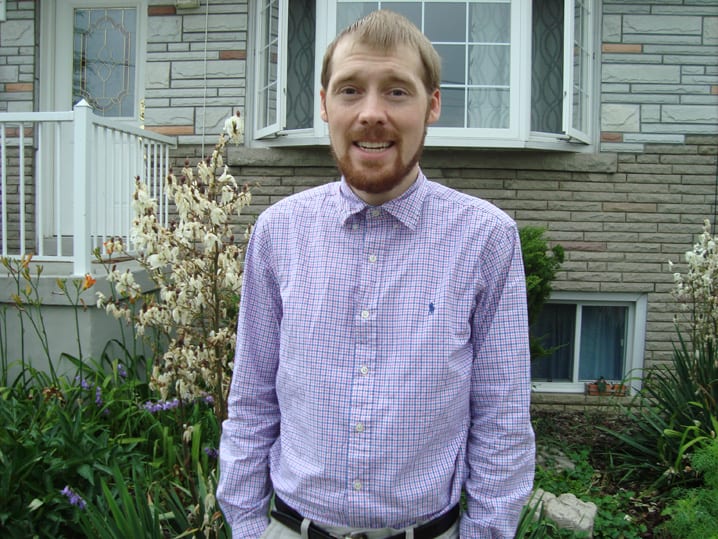
I was proud to call myself a homeowner. It took me two long years of searching to find a home in Toronto, one of North America’s most expensive housing markets. If you’re an American reader, you might not realize that housing affordability is a major concern for a lot of Canadians.
The average price of a detached home in Toronto is over $1 million CAD, and Toronto is only the second most expensive real estate market in Canada behind Vancouver. The real estate and cost of living is similar to what you’d find in a major U.S. city.
I bought my house for $425,000 with a hefty down payment of $170,000, leaving me with a mortgage of $255,000.
On September 22, 2015, just three years later, I paid off my mortgage.
Not only did I pay it off on my own (I didn’t receive any money from my family), I did it by 30. Paying off my mortgage early wasn’t easy – it required a lot of sacrifice, but it’s been well worth it.
Here’s how I did it, along with some tips on how you too can pay off your mortgage early.
Why Did I Want to Pay Off My Mortgage by 30?
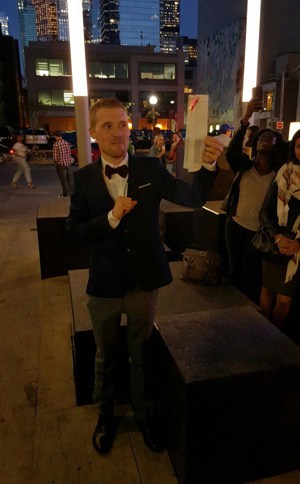
A lot of millennials feel like housing is out of reach, so I wanted to prove it isn’t. If a single, 20-something year old can pay off his mortgage in three years in Canada’s second most expensive housing market, what’s stopping other people from setting stretch goals for themselves and achieving them?
I was inspired by my mother to pay down my house quickly. When she was downsized during the dot com bubble, as a single mother she struggled to pay the mortgage and raise two children on her own.
I didn’t want to find myself in the same situation, so I vowed to pay off my mortgage as soon as possible.
Obstacles I Encountered Along the Way
The journey to mortgage freedom hasn’t been easy. There have been bumps along the road. In 2014, after the coldest February in Toronto history, I was faced with costly home repairs. I ended up spending $25,000 on home renovations, including a new retaining wall, front porch, sidewalk and eavestroughs.
I only had $15,000 in my emergency fund, so I worked that much harder to save money and come up with the extra $10,000. Hard work pays off – I didn’t have to go into debt to pay for the home repairs. My plans for mortgage freedom didn’t get derailed.
I’d like to say my family and friends were gung-ho on the idea of paying off my mortgage in three years, but that’s not quite true. I don’t hold that against them. While they didn’t necessarily agree with my decision to work a crazy amount of hours, eventually they came around and were supportive. I totally understand where they’re coming from – they were only looking out for my best interests.
The other obstacle I faced was self-motivation. My secret to staying motivated was something I like to call the “wall of inspiration.” I’ve seen people who keep positive emails and read them when they’re feeling down.
I took this a step further.
I framed my newspaper articles and placed them on the wall beside my computer. On those mornings I would wake up at 5AM and feel like sleeping in to 7AM, I would look at the article that said “mortgage-free by 31.”
I didn’t want to let anyone down, so it kept me going, even when I’d rather be hitting the snooze button on my alarm clock.
What It Took to Get There and What Set Me Apart From My Peers
Reaching mortgage freedom wasn’t easy. It look many sacrifices. One of those sacrifices was my social life. While my friends were out having a good time on Saturday nights, I was inside doing freelance work on the computer.
I was fortunate to have loyal friends who stood by me during this busy time. I also wasn’t able to travel as much as I’d hoped. My most exciting trip was a 24 hour bus ride to Wisconsin.
I lived very frugally during this time. I did what it took to save money. I packed my own lunch, cooked meals at home instead of dining out, and biked to work. Kraft Dinner was probably my best friend (and no, I didn’t eat it at every meal, just a couple times a week).
[thrive_lead_lock id=’519′]
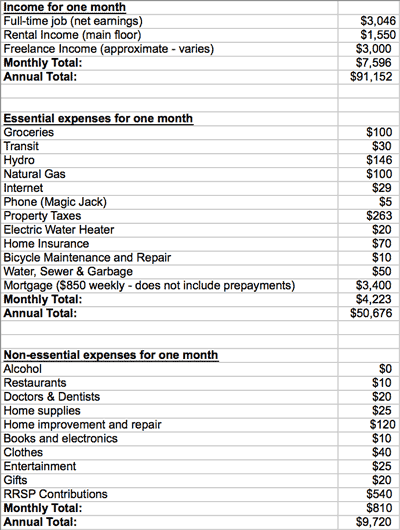
[/thrive_lead_lock]
Hard Work Really Matters
I’ve been told I have a strong work ethic. While I was paying down my mortgage, I typically worked 70 to 80 hours a week (sometimes as much as 100 hours a week). To quote Jimmy Carter, former president of the U.S.
“I have one life and one chance to make it count for something.” Click To TweetI set myself goals each day in terms of work. I set the goal of earning at least $50 a day extra in hustle income on top of my full-time job.
It’s this goal that kept me working, even when I’d rather be watching the basketball game or enjoying a night out with friends.
Paying Off My Mortgage vs. Investing
Some people have criticized my decision to focus on paying off my mortgage instead of investing. People wonder why I’m in any hurry to pay off my mortgage, especially when interest rates are low. With household debt hitting an all-time high, many Canadians seem to feel this way.
But if the financial meltdown in 2008/2009 and the lackluster start to the markets in 2016 has taught us anything, it’s that investment returns aren’t guaranteed. Financial experts used to say you could expect double-digit returns – now you’re lucky if you get six or seven percent return long-term.
What Lets You Sleep At Night?
My response to the critics is that at the end of the day, it’s all about what lets you sleep better at night.
For someone like me, a single 20-something year old living in the second most expensive housing market in Canada, debt repayment helps me sleep better at night. I just don’t feel comfortable with six figures of debt hanging over my head for the next 25 years.
Taking Advantage Of A Guaranteed Rate Of Return
When you pay down your mortgage, it’s also a guaranteed rate of return. It’s hard for me to turn down something guaranteed.
Risk management is also a reason I chose to pay off my mortgage. When have a mortgage, your biggest fear is losing your job. Unfortunately, you can’t depend on a job for life these days. Companies are looking to save on costs – that often means moving work overseas. You could come into work one day to find out your job has been moved to India.
With investing you have a choice, with debt repayment you don’t. You can always stop investing, but if you stop paying your mortgage, the bank will take away your home and you’ll ruin your credit history.
Save On Interest
The third reason you should consider paying off your mortgage is to save on interest.
For most families, a mortgage represents the single largest debt of their lifetime. People often end up paying over double the value of their home in interest payments alone.
I saved a boatload of interest by taking advantage of pre-payment options. Many mortgages in Canada let you make lump sum payments and increase your regular mortgage payment. This money goes straight towards principal, saving you a boatload of interest and cutting years off your mortgage amortization.
If mortgage rates are higher upon renewal, you won’t sweat it since you’re already used to paying more than the minimum.
Investors I Look Up To
The investor I look up to most is Warren Buffett. He has so many great quotes. My favorite is his only two rules for investing: “Rule No. 1: Never lose money. Rule No. 2: Never forget rule No.1.”
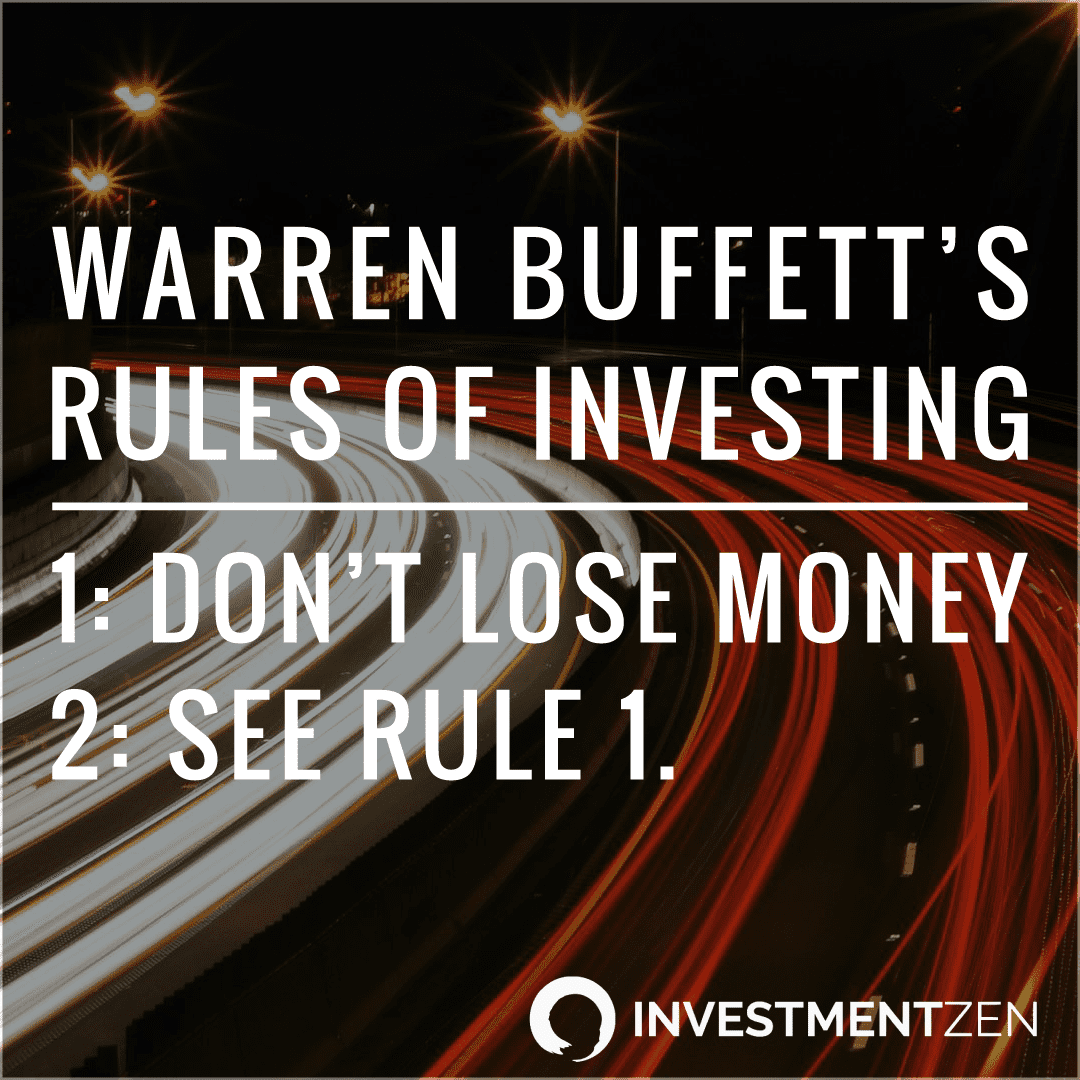
From @InvestmentZen On Instagram
I also look up to Mark Cuban of ABC’s Shark Tank. The outspoken owner of the Dallas Mavericks taught me a valuable lesson about work ethic: “Work like there is someone working 24 hours a day to take it away from you.”
Books and Blogs that Inspired Me
The personal finances books that inspired me are The Wealthy Barber Returns by David Chilton and Rich by Thirty by Lesley-Anne Scorgie.
I highly recommend these books. These aren’t you typical personal finance books with a ton of charts and graphs. They make personal finance fun and interesting and will change the way you think about money.
The blogs that inspired me are MoneyWise, Million Dollar Journey and Money After Graduation. I started blogging for Million Dollar Journey in 2011. This helped launch my career as a financial journalist.
The Reaction to My Viral Story
When my segment aired on CBC’s the National, I thought it would get some attention, but I had no idea just how much attention it would get.
The news story on CBC News ended up being one of the most read stories and was featured on the front page of their website. I ended up getting over 500,000 page views and 15,000 social media shares.
The story was so popular, a follow up article was done, which attracted a lot of attention, as well. I did five TV interviews and 20 radio interviews. The story inspired millennials, some of whom feel homeownership is out of reach.
While a lot of people were happy for me, not everyone celebrated my achievement. My story was very polarizing. Some were upset with my achievement.
Some people assumed my parents gifted me my down payment (not true), while others accused me of taking jobs away from people who needed them (because I was working 3 jobs while in school and 2 jobs afterwards).
As Dave Ramsey put it, I took the steps I needed to get myself out of debt, but others thought I was sending the wrong message.
While I understand most people can’t pay off their mortgage in three years like me, hopefully you can be inspired by my story and take some of my advice so you can be mortgage-free in 15 or 20 years, instead of 25-30.
How Being Mortgage-Free Has Changed My Life
Paying off my mortgage feels like the weight of the world has been lifted off of my shoulders. It feels like winning the lottery.
I work not because I have to, but because I want to. It has given me the opportunities to pursue things I’ve always wanted to, including volunteering and traveling (no more bus rides to Wisconsin for me!).
Now that I have more free time, I’d like to put it to good use. I recently volunteered for the United Way campaign at my work. I also helped organize a Syrian refugee clothing drive with my sister.
It’s easy to take what we have in Canada for granted. It’s important to realize how lucky we are to live in a great nation like Canada or the United States, where we have the freedom to pursue our dreams and passions.
My Investing, Savings and Lifestyle Plans Going Forward

Lifestyle inflation is a term that describes how our spending goes up during our career. As you move up the corporate ladder at work, your spending typically goes up. This often happens because of the people that surround us. We feel pressured to keep up with our family, friends, coworkers and neighbours.
While there’s nothing wrong with enjoying the fruits of your labour, it’s also important to put some of that money towards savings. Next time you get a raise at work, increase your savings rate as well or better yet, put that money toward your mortgage.
With my mortgage paid off, I’m investing the difference in low-cost index mutual funds. My next goal is to achieve a net worth of $1 million by age 35.
Even when your mortgage is paid off, it’s important have your next goal. Whether it’s saving towards retirement, buying an investment property or starting a business, have goals and an action plans to achieve them.
How To Pay Off Your Mortgage Faster In 3 Steps
1. Live Below Your Means
If you want to pay off your mortgage early, it’s going to require sacrifices. While you don’t have to go to financial extremes like me, it does require living below your means.
To keep your spending accountable have a budget. Your budget doesn’t have to be written in stone. Review your budget once at least every six months and look for ways to cut back. Any money you save can be put straight towards paying off your mortgage sooner.
2. Make Hustle Money
If you have free time, why not put it to good use? Instead of binge-watching episodes of Game of Thrones on Netflix, look for ways to earn extra money.
Get a part-time job, work overtime or freelance. The extra money you make can go directly towards paying down your mortgage faster.
3. Rent Out Your Home
Whether you have roommates or tenants, rental income is a great way to pay off your mortgage earlier. Roommates and tenants help you pay off your mortgage with rental income. However, being a landlord isn’t without its headaches.
Take your time to choose the right tenants and price your rental property properly. The last thing you want is a nightmare tenant to deal with who pays their rent late and damages your property.
Finally, I’ll leave you with 10 more tips to pay off your mortgage sooner.
I wish you a mortgage-free future!

